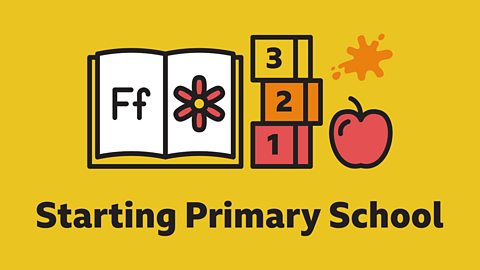This article was first published in August 2019
by Laverne Antrobus, Child Psychologist
'What will it be like?' 'Will I make friends?' Your child may have asked you questions like these many times as they approach their first term. You may also have been asking yourself the same things. So, how will the first day feel for you? For some parents, starting school will be the first time their child has been away from them. You might encounter a mixed bag of feelings as you realise you and your child are about to enter the next exciting stage of your lives. Here are my top tips to help make this transition a bit easier.
1. Saying a тgoodт goodbye
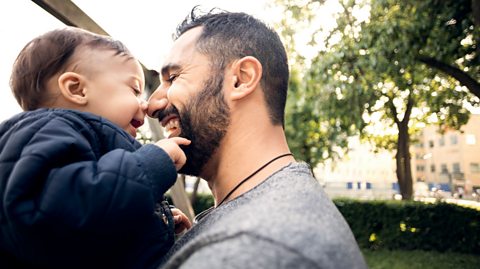
How a parent approaches the first few days at school alongside their child is crucial. Try to notice the feelings you are having in the run up to taking your child to school - it may be a curious mix of excitement and trepidation, with questions about whether or not your child is ready. You may also be thinking about what you will do once your child has started school. This new time in your childтs life perhaps also signals a new beginning for you. But whatever you are thinking, it's important that you manage your own worries, as your child needs to see that you are confident and can bear this separation. If you're feeling emotional on the first day, try to control your feelings so that your child can feel confident in themselves and have a positive start to school life.
2. Making friends with other parents

As well as children making new friends, parents will also be getting to know one another as they meet on the school run and in the playground. You and your child may have similar playground nerves about being liked and accepted. Friendships with other parents are an important way to stay connected to school life, so it's a great idea to get involved in the drop off and pick up experience by chatting to other parents, rather than talking on your phone or checking messages. This is precious time for you and your child - so try to be in the moment.
In the playground, be guided by the choices your child makes, look out for the children they seem friendly with and chat to that childтs parent. Let things settle for a couple of weeks before embarking on too many play dates, as friendships at this stage can change quite quickly. Try not to push your child into friendships on the basis of who you like, as this stage is all about helping your child find their own relationships which, with your support, they can extend at home and build on in school.
3. Make good links with the teacher
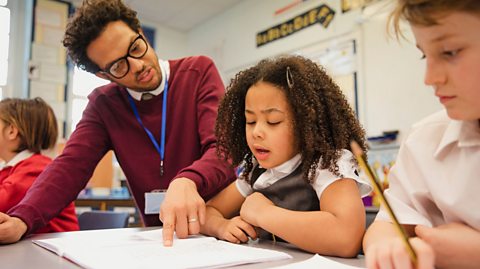
Building a good relationship with the teacher is really important. Not only will your child be listening to what you say about their teacher when you're at home, they'll also be observing how you both interact with each other when you meet at school. Remember to say hello to the teacher each morning, and if you need to talk to them about any worries you or your child may have it's a good idea to arrange a separate time to do this.
Remember to also let the teacher know about the positive things you hear your child say about school when they are at home. By doing this, parents can really help teachers to get to know different aspects of their childтs temperament and character. This knowledge will help you feel confident that your child is well known and will be supported at school.
4. No pressure

When your child starts school it can be tempting to compare them to the other children in their class. Try not to, as at this stage differences between children can seem pretty large - some children can seem quite confident whilst others can be quite shy. But this will change over time and so it's important to be patient. By taking this approach, you and your child will be able to celebrate moments of progress and work with the school to develop your child's confidence in other areas.
Parents can be quite competitive with each other too, so try to keep an eye on this. Avoid being drawn into comparisons about what others are doing for, or with, their child. Stick to what works for you and your child and donтt be afraid to say no to things that you feel are not right for you or your child.
5. Remember how important you are
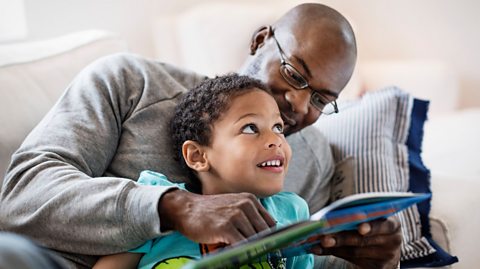
Remember that school is just one place that contributes to a childтs development; the life lessons that parents can teach children at home, such as making friends, showing empathy and being resilient are important life skills too. Try to praise any progress you see in these areas - for example, when you see children playing together, or when a child performs a kind act for a friend or another person.
Supporting your child through these first few days and weeks when they start school can be tough. Stick with it - your child needs you to be positive and provide a sense that this new stage is manageable. It can really help to talk to other parents about any worries you have, so that you can remain calm and confident in front of your child. And don't forget that if you need to discuss something with the teacher, then s/he is always on hand -they will more than likely have heard what you want to talk to them about before, from other parents. It's worth noting that children are often far more robust than they sometimes appear, and often it's the case that once they have talked to you about any worries after a particular day in school, they can then go in to school the next day feeling ready for the challenges that lie ahead, so there's often no need to worry.
For further information check out the rest of which has lots of ways to help prepare children for different aspects of school life т both practically and emotionally.

More from ТщЖЙдМХФ Bitesize Parents' ToolkitтІ
Parents' Toolkit
Fun activities, real-life stories, wellbeing support and loads of helpful advice - we're here for you and your child.

Parents share their tips for the school run
Back to school hacks, tips and tricks from real UK parents for the school run and beyond.
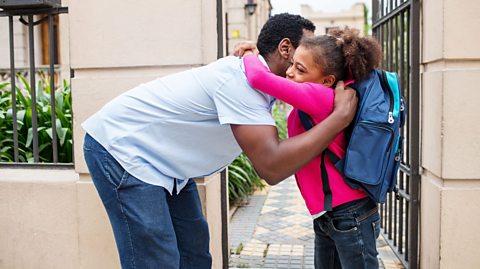
Ten fun things to do during the first year of primary school
Deputy headteacher Adam has ten great things to do with your child during the first year at school.

Is my child ready for school?
Child psychologist Laverne gives her tips for preparing children for starting primary school

Game - My First Day at School
Explore with your child what their first day of school might be like and play some classroom activities.

More Starting Primary School videos and articles
Head to our homepage to help you and your child prepare for starting primary school and thrive in school life.
